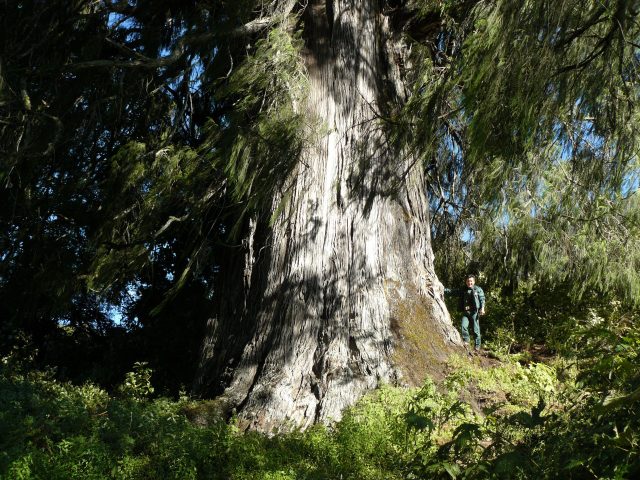via the Guardian by Peter B Campbell

The waves of the North Sea break in front of a beach of Heligoland, Germany.
Photograph: Christof Martin/EPA
The British Isles separated from the European continent approximately 8,000 years ago. For this Brexit there was no referendum or bus, no Leavers or Remainers, nor was it hard or soft. This was a watery Brexit as rising sea levels filled the Channel and created the North Sea. Maritime archaeology is revealing this submerged landscape that once connected the continent to Britain.
Earth is a dynamic planet that is constantly changing. Going back far enough in time, Britain has been separated from the continent several times as sea levels changed. However, for the study of Homo sapiens it is the change at end of the Pleistocene and the start of the Holocene epoch 11,700 years ago that is most interesting.
Continue reading
=============================
Britain’s secret war against the Soviets
via The National Archives Blog by Dr Richard Dunley
While going through private correspondence of Lord Curzon, the British Foreign Secretary from 1919 to 1924, a couple of letters jumped out at me. These were written by prisoners of war to their families and had been forwarded on to the King in a desperate plea for help. The truly remarkable part of the story is that these men were not held by the Germans, but by the new Bolshevik regime in Russia; collateral damage in Britain’s secret naval war with the Soviets.
Continue reading
=============================
Why do we love our pets so much?
via OUP Blog by Amelia Carruthers

“Animals, Dogs, Cat” by Gellinger. CCO Public Domain via Pixabay.
Since time immemorial, humans have kept animals for companions. Pets are known to provide physical and emotional benefits, not only in terms of companionship, but also in terms of outdoor adventure, exercise, and socializing with other pet owners. As Sigmund Freud once said, “Time spent with cats is never wasted.” Dogs and cats have been particular favourites throughout the ages, with cats commonly thought to have been domesticated in ancient Egypt, and dogs from the time of the hunter-gatherers. There is a special bond between every owner and their pet, but what exactly is it that brings us so close?
Continue reading
=============================
What’s in a place?
via The National Archives Blog by Matthew Hillyard
We usually feel we know where places are, or we have a good idea where they are; if we don’t, we can look them up. Ultimately we can point to them on a map. We might even talk about ‘pin-pointing’ them.
I feel comfortable with the idea of pointing to London on a map. I should do; I live there. But what, exactly, am I pointing at? My finger might come to rest on an area that roughly covers the middle of the city. That seems perfectly acceptable. But is that London? It will probably be more like ‘Inner London’ or maybe what’s referred to as the ‘City of London’. What about ‘Outer London’? Or even ‘Greater London’? Aren’t all of these areas relevant? As entities they are each officially recognised in the Index of Place Names in Great Britain (IPN) published by the Office for National Statistics (ONS). So if the ONS can count them, then surely they must count!
Continue reading
=============================
The contemporary significance of the Dead Sea Scrolls
via OUP Blog by Timothy H. Lim

Dead Sea Scroll Bible Qumran Israel by Windhaven1077. Public domain via Pixabay.
Many people have heard of the Dead Sea Scrolls, but few know what they are or the significance they have for people today. This year marks the 70th anniversary of the discovery of the Dead Sea Scrolls, and it gives us an opportunity to ask what are these scrolls and why they should matter to anyone.
Continue reading
=============================
Your old CD-ROMs are probably rotting
via Boing Boing by Cory Doctorow

In 2009, the Library of Congress commissioned a research report into the degradation ofCD-ROMs in storage as a way of assessing the integrity of the media in its collection: the news isn't pretty.
The standards for certifying a CD-ROM did not “place any requirement on the chemical or physical stability of the disc”, so depending on the manufacturer and process, the discs you’ve put away on shelves may have wildly different material properties.
Continue reading
=============================
23 treaties of Utrecht that changed European history forever
via OUP Blog by Linda Frey and Marsha Frey

“Allegory of the Peace of Utrecht (1713)” by Antoine Rivalz. Public Domain via Wikimedia Commons.
11 April marks the 304th anniversary of the signing of the Peace of Utrecht by most of the representatives at the congress that convened to negotiate the terms that would end the War of the Spanish Succession. Or perhaps it should be 12 April. A few contemporaries alleged that the documents were backdated so that the ceremony would not fall on 1 April, or Fools’ Day, according to the old calendar. At that time, England and most of Protestant Europe had still not accepted the Gregorian calendar reform of 1582, so countries that followed the old style were, by the eighteenth century, 11 days behind those who had accepted the new style. Purportedly, the representatives of the Netherlands either deliberately signed after midnight or refused to backdate the agreement, thinking 1 April (that is, April Fools’ Day) a fitting date for such a treaty.
Continue reading
=============================
Now Available: A Database of Tree Species
via ResearchBuzz Firehose: BT.com

A tsenden, Bhutan’s national tree (BGCI/PA)
Experts warn that many of the tree species are threatened with extinction.
There are more than 60,000 species of tree in the world, the first comprehensive assessment has revealed.
Botanic Gardens Conservation International (BGCI) has spent more than two years researching the question of how many tree species there are, consulting more than 500 published sources from which draw on the work of thousands of botanists over centuries.
Now the organisation, which represents the world’s botanic gardens, has an answer: 60,065 species of trees, more than half of which are found only in a single country.
Continue reading
=============================
A Staggering Work of Heartbreaking Modesty
via An Awfully Big Blog Adventure by Catherine Butler

“I’m the king of the castle, and you’re the dirty rascal!”
Do small boys still shout that from the top of any dunghill of which they happen to have made themselves temporary cock? (I say boys, because the rhyme itself is gendered, but of course there may be chatelaines too.) In doing so they would of course only be imitating their elders, but such outright expressions of self-praise and contumely are not generally encouraged by parents or teachers. This is not because we disapprove of ambition, or the wish to excel, qualities praised by politicians across the board, but because in Britain at least we feel that both boasts and insults are more effective, and far more acceptable, when fired at an oblique angle.
Continue reading
=============================
A Marvelous Moment for French Writers and Artists
The Pen and the Brush: How Passion for Art Shaped Nineteenth-Century French Novels by Anka Muhlstein, translated from the French by Adriana Hunter
via Arts & Letters Daily: Julian Barnes in The New York Review Books
 Kunsthalle Hamburg Édouard Manet: Nana, 1877
Kunsthalle Hamburg Édouard Manet: Nana, 1877 Continue reading
Definitely a reason to go to Hamburg, maybe the book will turn up in the public library.
Sorry the formatting went crazy
No comments:
Post a Comment